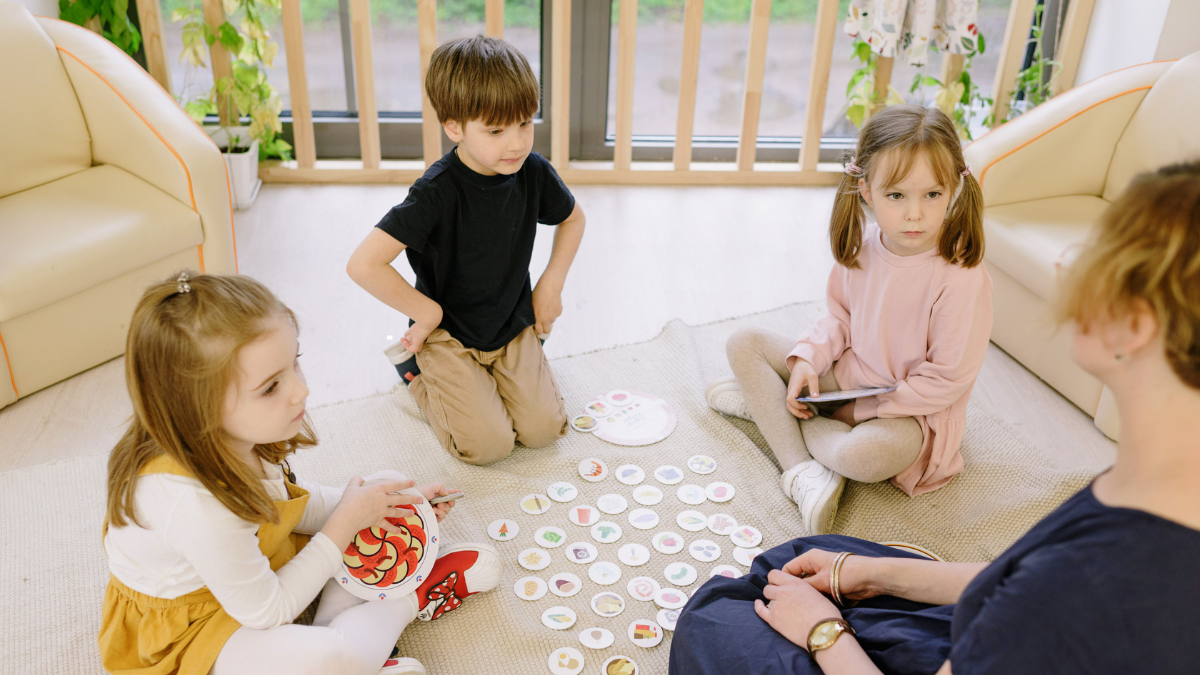The greatest responsibility that we can ever offer our children as parents is that they are loved and they are secure. Assurance of love is one of the basic needs that help them grow emotionally and create a sense of confidence and well-being.
Although it is important to say “I love you,” there are so many other ways to express love that can make a difference in their lives. These are the ten easy but effective ways to make your kids feel loved each and every day.
How to make your kids feel loved
1. Have Quality Time Together
With so much rushing around all the time, quality time is more important than ever before. Time spent together is one of the surest ways of telling your children that you love them. It does not necessarily have to be something special and expensive, even such basic things as a board game, a walk, or a book read aloud might become an unforgettable experience. It is simply a matter of being fully present. They are very precious to you when they seek your attention and time.
Example:
Make time weekly to have a special time where you spend time with your child without distraction such as phones or work. As an example, you can bake cookies on Saturday mornings or have weekend outdoor nature hikes. The activity is not a big deal, but the association you make through that period is invaluable.
Related: 200 Meaningful Baby Names Ideas
2. Express Your Physical Love
Things like hugs, kisses, and cuddles are very effective ways to love your kids. Physical affection makes them feel good, safe, and strengthens the emotional connection between you. Never discount the value of a touch of a finger or the hug.
Example:
Welcome your child each morning or night with a hug to make your child begin or end the day on a positive note. Having a woeful day at school? It can also work miracles in making them feel loved and supported with a reassuring pat on the back.
Related: 100 Fun Things to Do With Kids
3. Appreciate Their Effort Much More Than Success
Complimenting your child on his/her achievement is always a good idea, but it is equally influential to compliment your child on his/her effort. This makes them feel appreciated beyond just what they achieve. Congratulate their patience, ingenuity, or even the effort, no matter how it turned out.
Example:
Rather than saying, “Good work, you got an A!” say, “I am proud of you for working so hard on your homework.” For a new skill, such as drawing, instead of only complimenting their skill, say, “I like what you just painted, and you’ll improve with time — good job!”
4. Pay Attention to What They Want to Say
There are times that all your child requires is a listener. Listening to them, making eye contact, responding to them, and letting them know that you are following them with your full attention can make them feel that their thoughts or feelings are important. This induces a close feeling of companionship and makes them feel valued and wanted.
Example:
Stop doing what you are doing when your child is sharing something, listen and do not interrupt, and ask questions to keep them engaged. For instance, when your child is discussing his day at school, you can ask questions like, “What was the best part of your day?” or “How did that make you feel?” This shows that you are genuinely concerned about their experiences.
5. Share Your Love with Words
Say “I love you” to your kids, but don’t leave it at that. Be very precise about the reasons why you love them and the value they have in your life. Making them feel not only valued but also proud of themselves by making them aware of the special things that make them unique enhances their self-esteem and gives them a deeper sense of your attachment to them.
Example:
Instead of simply telling them “I love you,” tell them you love the way they treat others or how much you appreciate the laughter they bring to the family. These affirmations will give your child distinct feelings of personal appreciation, beyond behavior.
Related: 30 Summer Activities For Kids 8-10
6. Be Their Greatest Supporter
When children feel that parents care about them, they thrive. Make them feel that you are supporting them. Take them to their school events, show interest in their passions and hobbies, and cheer them on whenever they try something new. Your encouragement will construct their confidence and give them the feeling that you love them through your support.
Example:
Be present at recitals, games, or any event that your child is partaking in (even a small one). For example, if your child wants to learn to play the piano, make them feel supported by attending their initial recital, no matter how small, and applauding them. Your attendance and support will do much to make them feel cared for and inspired.
7. Establish Family Traditions
A feeling of security and belongingness can be established by family traditions, whether large or small. Traditions provide your children with something to look forward to and help them feel that they are part of something special.
Example:
It would be a good idea to initiate a tradition like having Sunday dinners together and making it a fond memory, or perhaps a yearly family outing. An example is to hold a family picnic once a year, and each member can contribute something. Such a tradition not only creates memories but also makes the emotional attachment between family members stronger.
8. Be Tolerant, Be Forbearing
Nobody is faultless, and children are the most prone to mistakes as they learn and develop. Loving also implies that you should be patient when things do not work according to the plan and understand that your child will make mistakes. By assisting them to learn irrespective of their mistakes instead of scolding them, you demonstrate that you love them unconditionally.
Example:
In case your child does something wrong, do not get angry. Instead, say, “It’s all right, everyone makes mistakes. Let’s see what we can do to be better next time.” For example, when they spill juice while assisting in setting the table, take it easy and help them clean it by saying, “It’s an accident; we’ll sort it together.”
Related: 10 Things Kids Secretly Observe from Their Parents
9. Teach Them to Love Themselves
One of the main aspects of showing your children that you love them is to ensure that they learn to love and trust themselves. Make them feel free to talk, do something different, and be proud of what they’ve accomplished. Children grow up knowing how valuable they are when they are taught to love and appreciate themselves.
Example:
Make your child say at least one positive thing about themselves each day. It may be as simple as, “I am good at drawing,” or “I am kind to others.” You can also model a positive attitude toward oneself and discuss your traits of character, for example, “I am glad to have accomplished something because I know I applied myself.”
10. Put Responsibility and Trust on Them
It can be very lovable to demonstrate trust in your child by giving them responsibilities. It reminds them that you trust them and their judgment, which fosters self-reliance and pride.
Example:
Give them age-appropriate work and duties at home and encourage them when they do them right. For example, they might prepare their own dinner or organize their books. When they finish, say something like, “You did well in organizing your books today. Thanks for your help!”
FAQ
1. How can I express family love to my kids when I am so busy?
In a hectic schedule, you can express love with small things such as throwing a brief hug, asking about their day, or leaving them a note. It’s quality rather than quantity. It’s about being deliberate in the time you spend with them.
2. What should happen if my child fails to react to my love?
Each child is unique. Some may be less dependent and need less physical affection. Find out what their love language is and give it to them — whether they require acts of service, words of affirmation, or quality time.
3. What about loving and being strict?
It is possible to love and be firm. Children need love with clear expectations and friendly discipline. Inform them that discipline is aimed at helping them grow, not at punishing them.
4. What are the things I can do to connect with my child?
Bonding with a child doesn’t need a lot of money. Simple things like taking a walk, preparing food together, playing their favorite board game, or reading a story can greatly enhance your relationship.
5. Can I go too far with affection?
Although affection is paramount, it’s also necessary to give your child room to develop on their own. Show them love in a manner that respects their individual boundaries and desires, and strive to achieve an equilibrium between their independence and your love.
Conclusion
It need not be a complicated or expensive process to make your kids feel loved. It’s all about being present both emotionally and physically and expressing your love in a way that makes them feel appreciated.
By giving them positive feedback through your actions as well as taking time with your children, the minor expressions of affection will create a strong and lasting relationship between the parent and the child. Love is not merely a matter of words, but also a demonstration of commitment on a day-to-day basis.
Are there any other tips to make your kids feel loved? Share them in the comments below!
Save the pin for later

- 8th Month Pregnancy Care: What To Expect, Dos And Don’ts - January 17, 2026
- 80 Beautiful Hispanic Girl Names for Your Baby - January 8, 2026
- 7 Physical Signs Your Baby Still Isn’t Ready to Come Out - November 28, 2025



